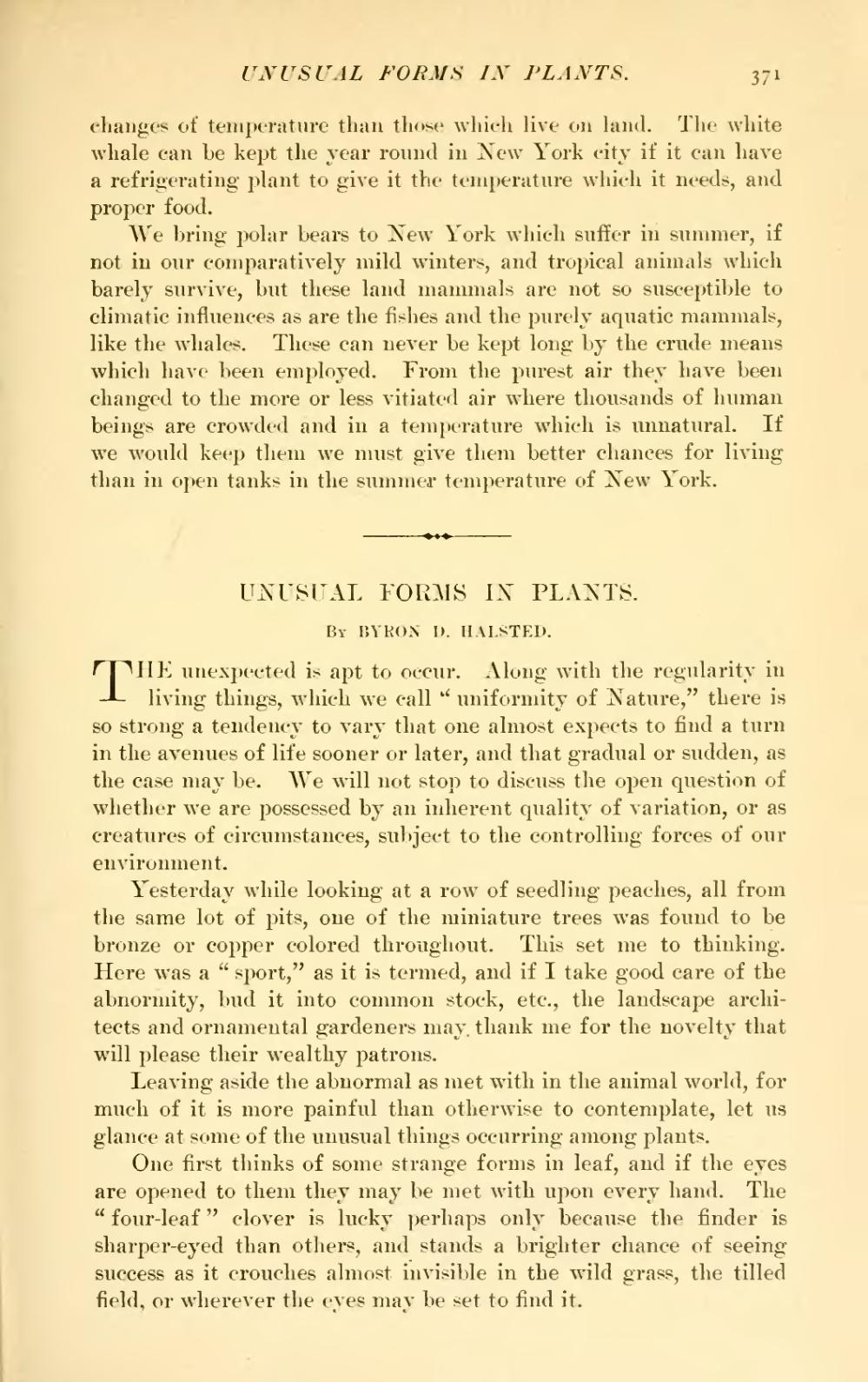changes of temperature than those which live on land. The white whale can be kept the year round in New York city if it can have a refrigerating plant to give it the temperature which it needs, and proper food.
We bring polar bears to New York which suffer in summer, if not in our comparatively mild winters, and tropical animals which barely survive, but these land mammals are not so susceptible to climatic influences as are the fishes and the purely aquatic mammals, like the whales. These can never be kept long by the crude means which have been employed. From the purest air they have been changed to the more or less vitiated air where thousands of human beings are crowded and in a temperature which is unnatural. If we would keep them we must give them better chances for living than in open tanks in the summer temperature of New York.
| UNUSUAL FORMS IN PLANTS. |
By BYRON D. HALSTED.
THE unexpected is apt to occur. Along with the regularity in living things, which we call "uniformity of Nature," there is so strong a tendency to vary that one almost expects to find a turn in the avenues of life sooner or later, and that gradual or sudden, as the case may be. We will not stop to discuss the open question of whether we are possessed by an inherent quality of variation, or as creatures of circumstances, subject to the controlling forces of our environment.
Yesterday while looking at a row of seedling peaches, all from the same lot of pits, one of the miniature trees was found to be bronze or copper colored throughout. This set me to thinking. Here was a "sport," as it is termed, and if I take good care of the abnormity, bud it into common stock, etc., the landscape architects and ornamental gardeners may thank me for the novelty that will please their wealthy patrons.
Leaving aside the abnormal as met with in the animal world, for much of it is more painful than otherwise to contemplate, let us glance at some of the unusual things occurring among plants.
One first thinks of some strange forms in leaf, and if the eyes are opened to them they may be met with upon every hand. The "four-leaf" clover is lucky perhaps only because the finder is sharper-eyed than others, and stands a brighter chance of seeing success as it crouches almost invisible in the wild grass, the tilled field, or wherever the eyes may be set to find it.

